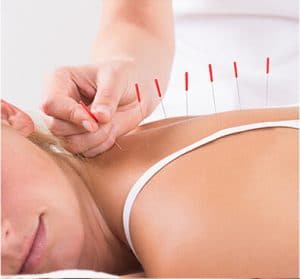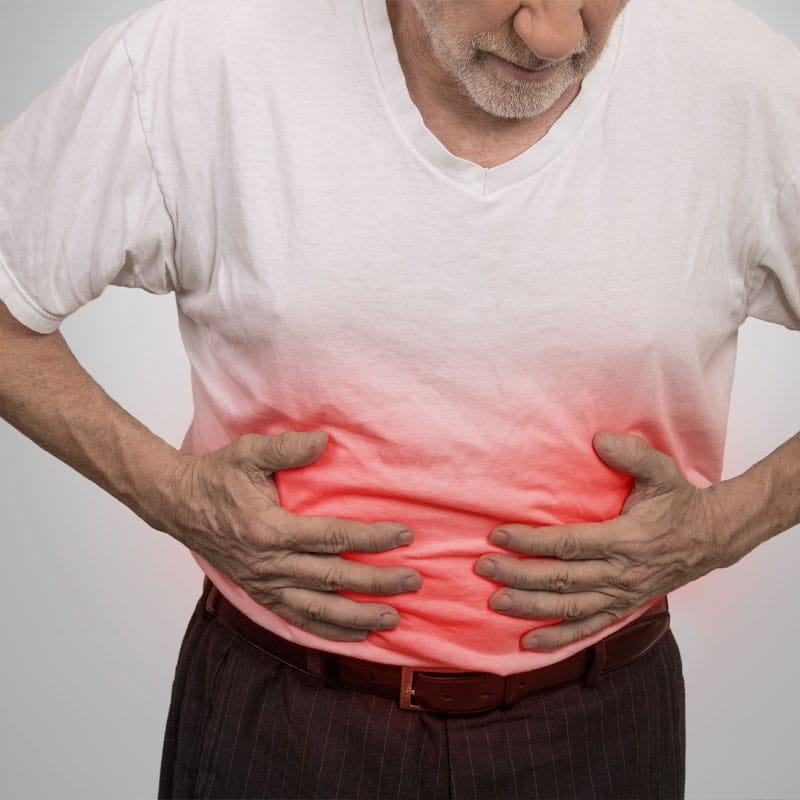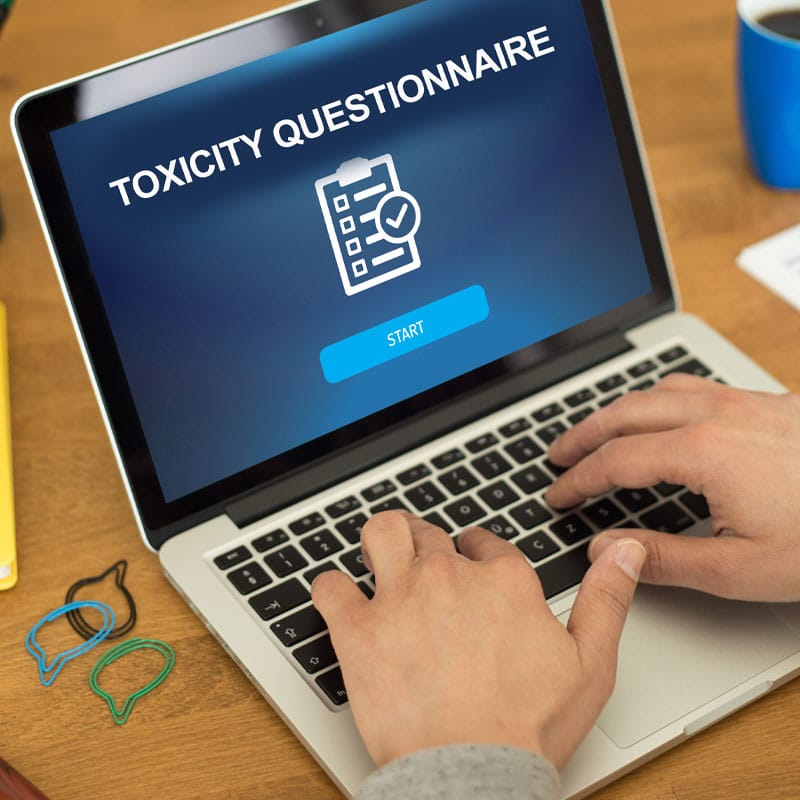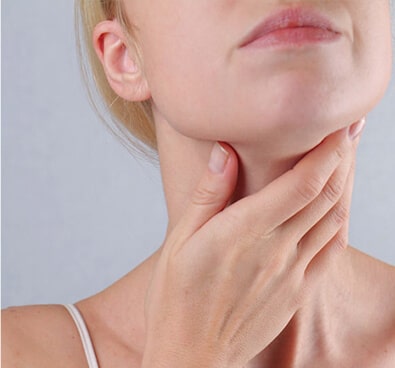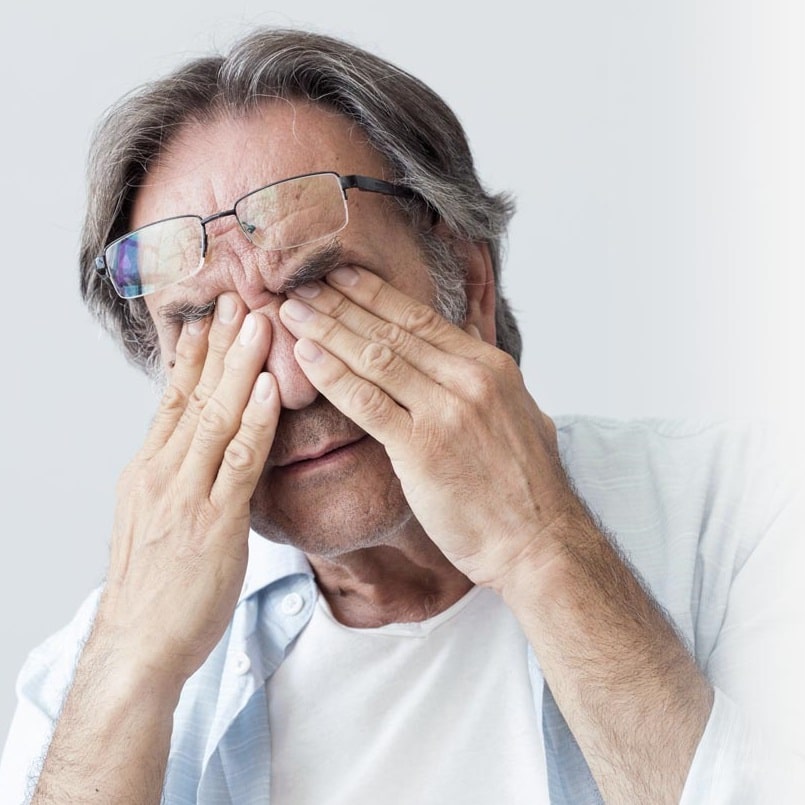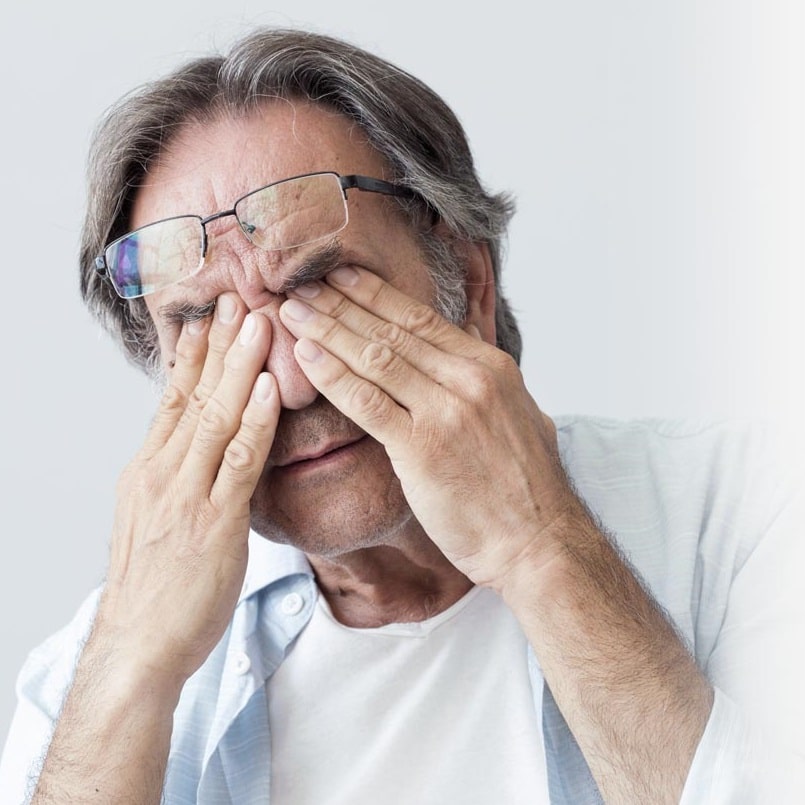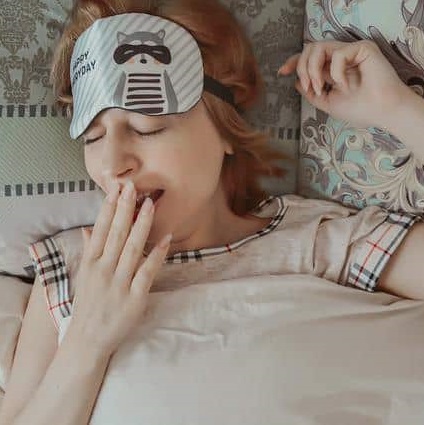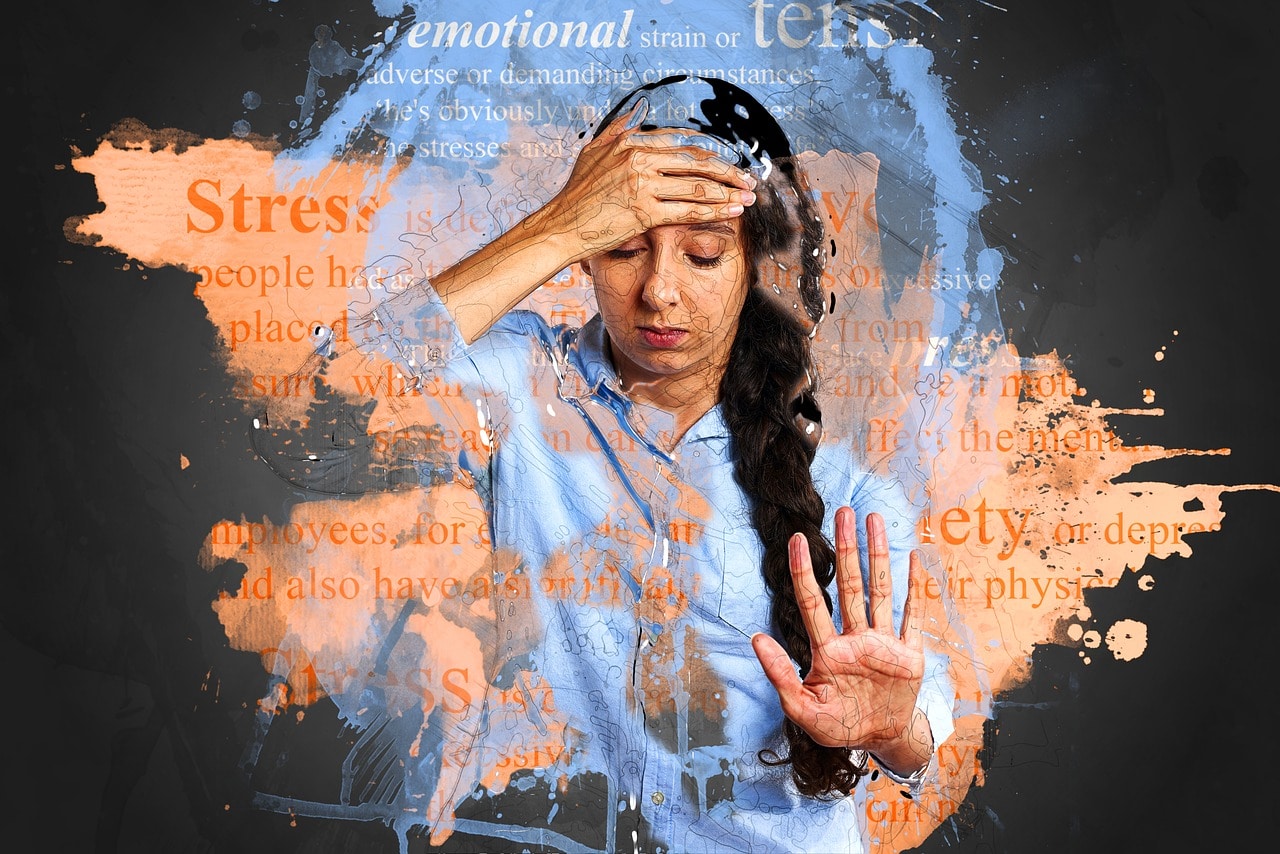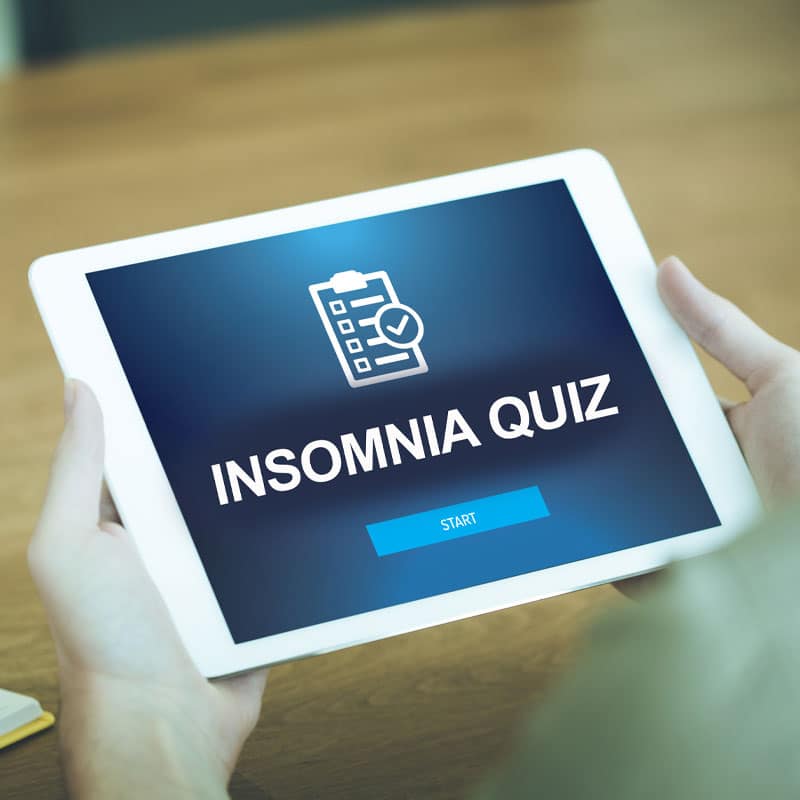Stress affects every part of your life, including your sleep. When you are stressed, it can impact the duration and the quality of your sleep. When you are not getting the recommended amount of sleep, your stress levels will begin to rise. The stress and sleep are connected and create the perfect storm for poor health.
The CDC recommends adults get a minimum of seven hours of sleep each night. Approximately 35.2 percent of American adults get less than seven hours of sleep. When you get less than seven hours of sleep, it affects every organ in your body. When the organs of your body cannot function properly, the adrenal system activates, dumping the stress hormone, cortisol, into your body.
How Stress Affects Your Sleep

- Daytime sleepiness
- Irritability
- Fatigue and poor motivation
- Increased risk of injury
- Concentration difficulties
- Poor memory recall
- Impaired performance – professionally, academically, socially, or familial
- Behavioral issues like impulsivity, hyperactivity, and aggression
The stress of daily life can affect your ability to get a good night’s sleep. During times of high stress, your ability to get to sleep and stay asleep decreases exponentially. Some of the common stressors that can cause insomnia are:
- Dissatisfaction or problems at work
- Family issues or divorce
- Death of a friend or family member
- Illnesses
- Injuries
- Life changes
- Financial problems
Stress can also cause sleep apnea. Sleep apnea is a sleep disorder that occurs when the soft tissues in the upper airway collapse during sleep. Sleep apnea causes choking episodes, loud snoring, daytime sleepiness, and morning headaches. When you suffer from sleep apnea you can develop a variety of health issues.
Effects of Poor Sleep and Increased Stress
Common causes of poor sleep include:
- Low magnesium
- Low progesterone
- Low melatonin
- High cortisol
- Low or High thyroid function
- Imbalanced Neurotransitters (Low serotonin, Low gaba, High glutamate, High histamine, etc.)
- Lifestyle factors (stress, toxins and stimulants, exercise, sleep habits)
Tests can be done to evaluate the chemical/hormone sleep disruptors. However, lifestyle management cannot be ignored and is extremely critical to improving sleep quality and quantity. Individuals who get less than seven hours of sleep in a 24 hour period are at an increased risk to develop the following health conditions:
- Arthritis
- Asthma
- Cancer
- Chronic kidney disease
- COPD
- Coronary heart disease
- Depression
- Diabetes
- Heart attack
- High blood pressure
- Stroke
Each of these health conditions increases the amount of stress that an individual must deal with, which further exacerbates their health problems.
Does Sleep Help with Stress?
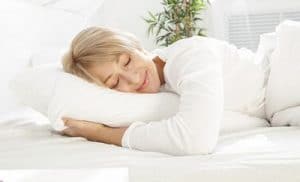
Each stage of sleep causes different areas of the brain to experience decreased or increased activity. It is believed that these increases and decreases in activity are responsible for memory, learning, and thinking. According to the National Center for Biotechnology Information, the changes in brain activity during sleep affects your emotional and mental health.
When you get sufficient amount of sleep, your brain can better process your emotions. During sleep, your brain processes thoughts and memories and evaluates them. When you do not get an ample amount of sleep, your emotions can become negative and the risk of suicidal ideation and behaviors increases.
Stress Relief for Restful Sleep
Stress management is needed to get a good night’s sleep. Learning how to manage your stress levels through stress reduction techniques, a balanced diet, and daily exercise is paramount to a good night’s sleep. Let’s take a look at some stress relief techniques and how to incorporate them into your daily life.
- Guided Imagery – Guided imagery involves envisioning yourself in a happy place. For example, if one of your favorite places to be in the mountains, envision yourself there, listen to the wild animals scampering across the forest floor, smell the crisp scent of pines and spruces mingled with the earthiness of the trail, and feel the cool breeze blowing through the trees. As you spend time enjoying this imaginary world, your stress levels will decline.
- Progressive Muscle Relaxation – This relaxation technique involves relaxing each group of muscles in the body. Begin by lying down in a comfortable position, breathing in through your nose and out through your mouth. Starting at the top of your head, focus on each group of muscles. Tighten the first muscle group and then relax it. Continue this technique down your body until you reach the toes.
- Enjoy a Walk – Exercise is a great way to reduce your stress. A walk provides you with a change of scenery, which can help refocus your mind and reduce your stress. Although you can reap numerous stress reducing benefits by taking a stroll around the parking lot at work, you can maximize the beneficial effects of walking by finding a peaceful location like a park or along a waterway.
- Warm Bath – Harness the power of aromatherapy by drawing a warm bath and adding soothing herbs like lavender to your bathwater. Soak for at least 15 minutes. To maximize the effectiveness, of your warm bath, dim the lights, light some aromatherapy candles, and put on some soft, soothing music.
- Acupuncture – Acupuncture helps with stress relief. It has been used for thousands of years to calm the mind, restore the body, and reduce stress levels. Acupuncture uses microneedles to puncture the skin. These small traumas cause the adrenal system to release endorphins, which help to reduce stress.
Food and Sleep

- Each person’s carbohydrate need varies widely based on activity level and baseline metabolic rate. Generally speaking, people need anywhere from 50-200 grams daily. With sleep difficulty, it is important that you don’t go below 75 grams daily. The only way to know what is right for you is to experiment and observe.
- It is important to take activity level into consideration —if you are an avid exerciser you will need more carbs (50 grams per day is not going to cut it).
- If you are more sedentary, you will not need more than 150 grams/day. Adjust these levels until you find the right fit for you. Our Health Coach will help you through this process.
Stop munching 2-3 hours before bed and avoid being too full at bedtime (unless you suffer from low blood sugar or hypoglycemic issues).
Avoid Under Eating – Hunger and low blood sugar can give you insomnia and can wake you up in the middle of the night. Most people’s bodies naturally help them to eat the right amount, but if you’ve been intentionally trying to lose weight, or restricted eating because of digestive or other health issues, your appetite signaling can easily go off track, and so can your sense of what is enough food. If you’re not sure that you’re eating enough try the following:
- Use an online calculator to figure out your approximate caloric need or complete the InBody Body Composition Analysis test at Rose Wellness for a more accurate number.
- Use a food tracking app such as MyFitnessPal to keep track of your calories for a few days.
- If you’re under-eating, increasing your calories may be the silver bullet solution to help you sleep deeper and fall asleep easier.
Eat Protein-rich Foods – Foods that are rich in the amino acid tryptophan can be beneficial for better sleep. Tryptophan increases the sleep-producing hormone melatonin. Foods rich in tryptophan include chicken, turkey, organic boiled egg, organic milk or plain unsweetened yogurt, nuts, and seeds (Avoid high-fat cheeses, chicken wings or deep-fried fish. These take longer to digest and can keep you awake.) Combining these with rice, whole grain pasta, or potatoes helps the body get the most benefits from tryptophan.
Unsaturated Fats – These will not only boost your heart health but also improve your serotonin levels. Examples include peanut butter (read the label to make sure peanuts are the only ingredient) and nuts such as walnuts, almonds, cashews and pistachios. Additionally, avocado and sugar-free organic yogurt are great choices for late-night eating because they are high in relaxation inducing nutrients, such as magnesium and potassium.
Stimulants and Sleep
Alcohol – notoriously causes rebound anxiety and 3 am awakenings for many people. Even though it might seem like a glass or two of wine helps with falling asleep, the quality of sleep is affected by alcohol, leading to middle of the night and early morning awakening.
Caffeine – The half-life of caffeine is 6-8 hours. That means if you drink coffee at 1pm, half of that caffeine may still present at 9pm, making it harder for you to relax before bed. Drink your last cup of a caffeinated beverage by 2 p.m. Very caffeine sensitive people may not even be able to drink one cup of coffee in the morning.
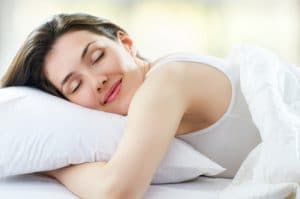
Ready for Some Restful Sleep
Stress can be detrimental to your sleep patterns. When you are unable to get a full night’s sleep, it can cause you to become more stressed, which can create a vicious pattern. The less sleep you get, the more stressed out you become, and the more stressed out you become, the less sleep you get. Our integrative practitioners can help you with stress relief techniques to improve your sleep health. If you are suffering with sleep disorders like insomnia, our physicians can help.


